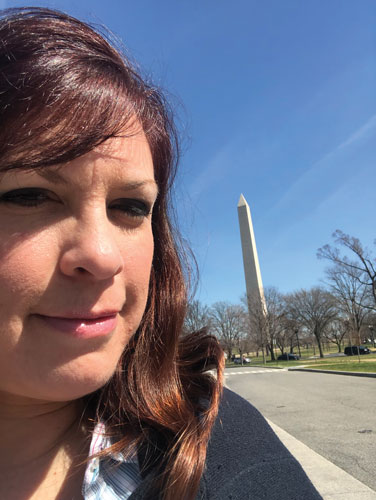9/1/2020
USDA Announces More Eligible Commodities for CFAP
Jennifer Zurko

U.S. Secretary of Agriculture Sonny Perdue announced in August that additional commodities—which now includes horticulture and nursery products—are covered by the Coronavirus Food Assistance Program (CFAP) in response to over 1,700 public comments and data. Additionally, the U.S. Department of Agriculture (USDA) is extending the deadline to apply for the program to September 11 and producers with approved applications will receive their final payment.
AmericanHort and other industry organizations have been working diligently on getting horticulture included in the program and their efforts have paid off.
Craig Regelbrugge, Vice President of Advocacy and Government Relations for AmericanHort, said in a statement: “AmericanHort extends our sincere appreciation to the USDA for working with us to provide meaningful nursery and floriculture grower relief. For countless horticultural producers, the effects of the coronavirus’ sudden closure of markets during our peak selling season risked destroying businesses across the supply chain. We are happy to report Secretary Sonny Perdue and Under Secretary Bill Northey responded with understanding to help the industry successfully navigate the pandemic by expanding eligibility to this program.”
The program, funded through the Coronavirus Aid, Relief, and Economic Stability (CARES) Act and the Commodity Credit Corporation, provides direct assistance payments to eligible commodities for which significant losses occurred due to pandemic-related market disruption.
USDA collected comments and supporting data for consideration of additional commodities through June 22, 2020. Nursery crops and flowers are eligible for CFAP, which includes everything potted in floriculture, grown in a greenhouse or outside, plus cut flowers and cut greens. Relief payments may cover two types of losses:
• For nursery crop and cut flower inventory that was shipped, but subsequently spoiled or is unpaid due to loss of marketing channels between January 15, 2020 and April 15, 2020, the wholesale value of the inventory that was shipped that spoiled or is unpaid, multiplied by 15.55%; and,
• For nursery crop and cut flower inventory that did not leave the farm between January 15, 2020 and April 15, 2020 due to a complete loss of marketing channel, the wholesale value of the inventory ready for sale that did not leave the farm by April 15, 2020, and that will not be sold due to lack of markets, multiplied by 13.45%.
Nursery crop and cut flower inventory that may be sold after April 15, 2020 is not eligible for CFAP. Note also that there are overall payment limits and entities deriving income from non-agricultural sources may have other eligibility limits.
To ensure availability of funding, producers with approved applications initially received 80% of their payments. The Farm Service Agency (FSA) will automatically issue the remaining 20% of the calculated payment to eligible producers. Going forward, producers who apply for CFAP will receive 100% of their total payment, not to exceed the payment limit, when their applications are approved.
Producers, especially those who haven’t worked with FSA previously, are recommended to call (877) 508-8364 to begin the application process. An FSA staff member can help producers start their application during the phone call. Additional details can be found at farmers.gov/cfap.
—JZ
USDA Launches Offshore Greenhouse Certification Program
Unrooted annual, perennial and even some woody plant cuttings produced in growing operations outside the U.S. have become very important to the U.S. horticulture supply chain. In recent years, roughly two billion such cuttings have been imported to be finished here. But the cuttings are highly perishable and any delays in the import process can lead to diminished quality or even product loss.
Beginning in 2017, AmericanHort has led an industry working group that developed a certification pilot program. Under the pilot, which is now being launched as a full program, offshore facilities that are able to meet or exceed minimum standards for parameters like facility construction, sanitation, water, media and pest management, training and recordkeeping, may become certified by USDA’s Animal and Plant Health Inspection Service (USDA-APHIS) and the national plant protection organization in the country of production.
Qualifying cuttings shipments will be inspected by USDA-APHIS at a much lower frequency than currently. Most shipments will be expedited through the import process without delay, analogous to the way travelers enrolled in the Global Entry program speed through the airport clearance process.
The pilot program was limited to four major cuttings producers with facilities in six Latin American countries. The program will now become an option for producers elsewhere, too. Shipments from certified facilities must:
• Consist of only unrooted cuttings from the APHIS-approved taxa list
• Be produced in an APHIS-certified facility
• Be represented by a customs entry that was filed with APHIS CORE Message Set data
The latter point reflects a broader move by the U.S. government to require all necessary data associated with a consignment for import to be submitted electronically through a “single window” operated by Customs and Border Protection. This requirement is being phased in generally; it will be a requirement for the Offshore Greenhouse Certification Program to facilitate random selection of a low percentage of shipments that must be inspected to monitor program compliance. Though the pilot involved only inspection stations in Miami and Atlanta, all APHIS plant inspection stations will participate in the full program.
This has been an exciting and interesting partnership for AmericanHort, member breeder-growers and USDA-APHIS. We’re pleased to see the full program finally launching. Full details can be found at aphis.usda.gov.
—Craig Regelbrugge, VP of Government Relations & Research, AmericanHort